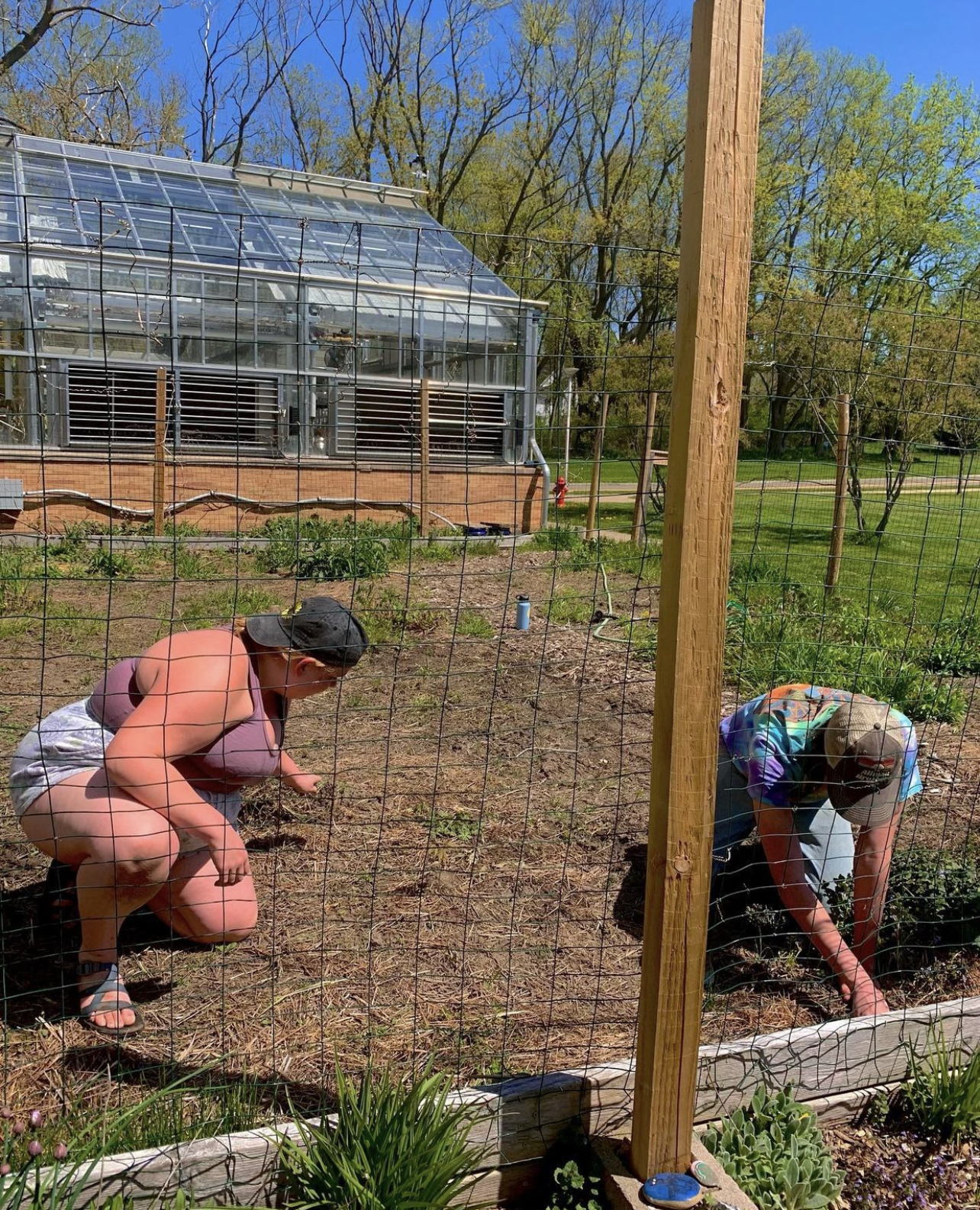CHLOE KOWALYK
Managing Editor

Imagine a SUNY Fredonia filled with fruit-bearing trees and freshly grown vegetables plentiful across campus. Students could harvest these crops each season, and could implement them into healthy meal ideas while in college.
The campus would be filled with healthy and edible greenery for all students to enjoy.
Dr. Ici Vanwesenbeeck, an associate professor of English, believes this could one day become a reality. Over the summer, she drafted a resolution proposing a potential edible landscaping project for SUNY Fredonia to adopt. Edible landscaping is the process of planting crop-yielding plants and trees in place of a typical landscaping design. Examples include planting herbs, peppers, tomatoes and edible flowers.
It’s not uncommon for colleges to employ edible landscaping on their campuses — in fact, several other colleges such as Clark University and the University of Florida have already brought crops onto campus. Other SUNY colleges like SUNY Cortland have begun planning similar projects like an edible forest garden.
Even SUNY Fredonia has slowly begun this process. The student-run club, Fred Grows, already has their own edible garden on campus. “It’s a community garden, and it’s free to anyone on campus or in the community,” said Ellie Wilson, a senior English major and president of Fred Grows. The garden is located behind the Science Center, near the greenhouse.
When Wilson heard about the idea of edible landscaping, she was all for it. “I think a lot of students would benefit from [it],” she said.
Both Vanwesenbeeck and Wilson believe edible landscaping could leave behind a positive legacy.
“What kind of a legacy do I want to leave?” Vanwesenbeeck asked. “That takes me to a place that’s more than just today and tomorrow, or seasonally, right? … With an eye in the future with a lot of consideration about our legacy for the future generations,” she said.
This initiative aims to reap benefits for future SUNY Fredonia students, as the garden will continue to grow for years to come.
Wilson said, “I think that’d be such a wonderful legacy to leave behind from a senior class, as a ‘farewell’ project. … It could also be such a great idea for any of the students to do as well.”
Vanwesenbeeck pointed to food insecurity as a growing concern among college students, and this legacy could be a way to benefit future students. She cited the on-campus food pantries that do offer canned vegetables and a limited assortment of healthy options. However, Vanwesenbeeck mentioned that even with SNAP programs and similar food assistance programs, people are “alienated” from produce.
Not only would edible landscaping provide students with healthy food and an opportunity to leave a positive impact on their campus, but Vanwesenbeeck also believes that the resolution will help SUNY Fredonia accomplish its goals towards sustainability. “The resolution [gives] us an opportunity to rethink and reimagine our relationship with our land,” she said.
Vanwesenbeeck wants her resolution to get campus community members thinking about how edible landscaping would function at SUNY Fredonia. She is hoping to spark conversations regarding soil type and local climate to assess what edible landscaping in Fredonia would look like.
Vanwesenbeeck also noted how an edible landscaping project on campus would be “spearheaded” by students. “Students are the ones who will likely have a conversation about what kind of access to food they want to have,” she said.
She has presented the information to students at the Student Association General Assembly meeting on Thursday, Sept. 29 and is hoping to bring it to the University Senate this November.
The Resolution:
Whereas the sustainability mission of SUNY Fredonia says that “Our mission is to integrate sustainability into all aspects of campus life by: Educating students, faculty, staff, and the community about environmental, social, and economic issues; promoting environmental awareness and responsibility in personal and institutional choices; and inspiring innovative environmental solutions, behavioral changes, and ethical stewardship of the natural world”; and,
Whereas investing in edible landscaping is in line with the SUNY Fredonia environmental mission and pledge, and these steps would provide access to unpackaged fresh food; and,
Whereas planting edible plants will help with the current SUNY Fredonia efforts to reduce our carbon footprint; and,
Whereas lawn care is costly, water resources limited, and institutions move to alternatives such as edible landscaping and xeriscaping; and,
Whereas SUNY Fredonia acknowledges that food insecurity is a problem on our campus and edible landscaping would offer a sustainable solution to food insecurity in the community; and,
Whereas access to fresh and sustainable food is a healthy alternative to the predominantly canned or packaged food offered in the Fredonia Campus Food Pantry; therefore be it
Resolved that the Fredonia University Senate recognizes the importance of investing in edible landscaping on campus as a part of our environmental and sustainability pledge; and be it further
Resolved that the Fredonia University Senate recommends that the university commits to edible landscaping on designated areas on campus by supporting things such as but not limited to soil testing, site identification, plot design, cost-benefit assessment, plant selection, volunteering and internship opportunities, in consultation with pertinent stakeholders, committees, students, faculty, and staff.
